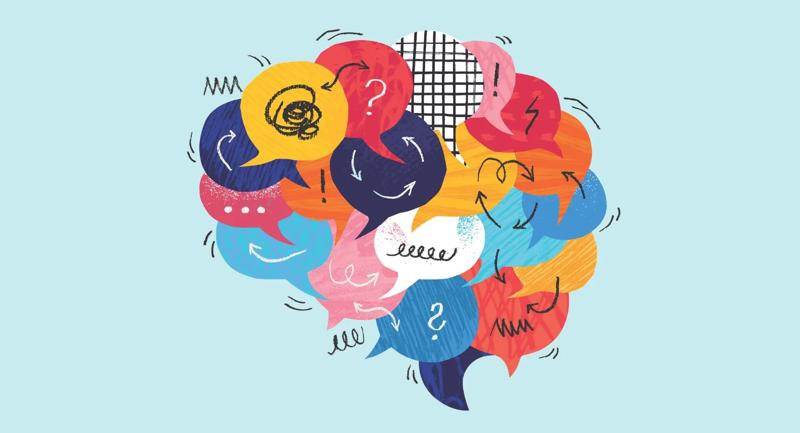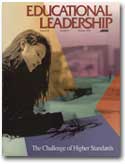Enterprising learning communities looking toward education in the next century know that new educational goals are imperative for our youth's survival, the continuance of our democratic institutions, and even for our planetary existence. Learning how to learn throughout a lifetime; knowing how to behave when answers to complex problems are ambiguous, dichotomous, and paradoxical; and generating, organizing, and applying an abundance of technological information are just a sample of the types of goals we need to establish.
From such goals, we will establish world-class standards. But to do this, we must be prepared for a paradigm shift. We will have to replace some of our obsolete, traditional views of education with more modern, relevant, and consistent ones. We will let go of our obsession with content acquisition and knowledge retention as merely ends in themselves. We will dismiss uniformity and begin to value diversity. We will extinguish external evaluation of students and teachers in favor of self-evaluation. We will replace extrinsic rewards with learning activities that are intrinsically motivating. We will deflate competitiveness to expand interdependence. We will redefine smart to mean knowing how to draw forth from a repertoire of strategies, knowledge, perceptions, and actions according to contextual demands.
Since all aspects of a system are interlocking, all parts must change in accordance with the new paradigm. No one part can operate efficiently unless the other parts of the system work harmoniously (Kuhn 1970). Imposing higher standards, therefore, is not just “kid stuff.” Higher standards must be set for all components of the educational enterprise. We will need to evaluate the contribution of all parts of the system to higher standards in curriculum, instruction, and assessment.
Higher curriculum standards. Our obsession with the archaic compartmentalization of the disciplines keeps school staffs separated. As intellectual development, thinking, problem solving, and cooperating become the core of the curriculum, traditional content and subject-matter boundaries will become increasingly obscure and selectively abandoned. Process will become the content of instruction.
Our view of instruction will shift from learning of the content to learning from the content. History, physical sciences, mathematics, or the arts in the curriculum will no longer be ends in themselves; instead, problem-based instruction will serve as the vehicle for learners to integrate, reflect on, and transfer the unique knowledge, structure, and modes of inquiry of several disciplines. Teachers will select relevant, problem-centered, integrative themes because of their contributions to the thinking/learning process, and we will focus standards on applying concepts from a variety of fields to produce new knowledge, transfer strategies to novel situations, and tackle complex problems.
Higher instructional standards. Having world-class standards will make us begin to see the profession of teaching as intellectually complex, collaborative, and reflective. Teachers who have achieved the highest stages of intellectual functioning are more committed to and empathic with individual students, and they provide greater stimulation for students to function at higher levels of cognitive complexity as well (Glickman 1985).
knowledge managers who judiciously select topics and problems for their contribution to achieving these standards;
team planners who continually clarify the school community's desired outcomes and create instructional strategies to achieve their goals;
collegial coaches who teach, observe, and give nonjudgmental feedback to one another;
collaborative researchers who experiment with and evaluate curriculum and instructional effectiveness and modify them accordingly.
directly observing performance in collaborative problem-solving situations;
collecting logs, journals, and portfolios of selected artifacts of learning excellence;
observing performances while conducting extended cooperative projects;
conducting interviews to discover students' self-perceptions as problem solvers;
maintaining checklists recording indicators of growth toward desirable habits of mind;
assessing displays, exhibitions, and performances according to both internal and external criteria; and
employing media and advanced technology to assist in collecting and recording information.
The entire community must become committed to higher standards of educational excellence. This means higher standards of social services as well: health care, employment, child care, recreation, continuing education, housing, and welfare. The problems children bring to school that detract from their achievement of higher standards are often societal, not learning, problems. Schools, being a reflection of society, will achieve higher, world-class standards only when American society imposes higher, world-class standards on itself. Achieving higher standards requires the devotion of the greatest share of our resources to the development of each person's fullest potential.





